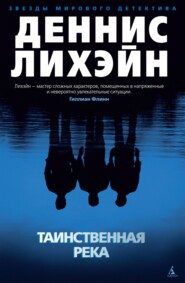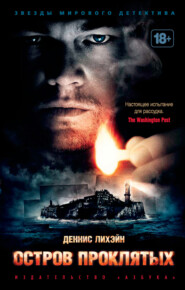По всем вопросам обращайтесь на: info@litportal.ru
(©) 2003-2024.
✖
The Terrorists
Автор
Год написания книги
2019
Настройки чтения
Размер шрифта
Высота строк
Поля
‘It's an ordinary gardening knife,’ said Hedy-Marie Wirén. ‘The same kind she's always had. As anyone can see, the handle is worn and the tool well used.’
‘Nonetheless, it can be said to be a dangerous weapon,’ said Bulldozer.
‘I don't agree at all. I wouldn't even attempt to kill a sparrow with that knife. Rebecka also has a totally negative attitude towards violence. She doesn't understand why it occurs and she herself would never dream of giving anyone so much as a slap.’
‘Nevertheless, I maintain that this is a dangerous weapon,’ said Bulldozer, waving the gardening knife about.
He did not, however, seem altogether convinced, and although he was smiling at the witness, he was forced to summon up all his benignity to accept her next comment with his famous good humour.
‘That means that you are either malevolent or else simply stupid,’ said the witness. ‘Do you smoke? Or drink?’
‘No more questions,’ said Bulldozer.
‘The interrogation is now over,’ said the judge. ‘Does anyone wish to ask any questions before the character appraisals and the closing arguments?’
Braxén, limping and smacking his lips, approached the bench.
‘Character appraisals are seldom more than routine essays, written to allow the writer to earn his fifty kronor, or whatever it is. So I would like – and I hope other responsible people will join me – to ask Rebecka Lind herself some questions.’
He turned to the accused for the first time. ‘What is the name of the King of Sweden?’
Even Bulldozer looked surprised.
‘I don't know,’ said Rebecka Lind. ‘Do I have to know that?’
‘No,’ said Crasher. ‘You don't. Do you know the name of the Prime Minister?’
‘No. Who is that?’
‘He is the head of the government and the leading politician of the country.’
‘Then he's a bad man,’ said Rebecka Lind. ‘I know that Sweden has built an atomic power station in Barsebåck in Skåne, and it's only twenty-five kilometres from the centre of Copenhagen. They say the government is to blame for the destruction of the environment.’
‘Rebecka,’ said Bulldozer Olsson in a friendly way, ‘how do you know about things like atomic power when you don't even know the name of the Prime Minister?’
‘My friends talk about that sort of thing, but they aren't interested in politics.’
Crasher let everyone think that over. Then he said, ‘Before you went to see this bank director, whose name I have unfortunately forgotten, presumably for eternity, had you ever been inside a bank before?’
‘No, never.’
‘Why not?’
‘What for? Banks are for the rich. I and my friends never go into such places.’
‘And nevertheless you did go there,’ said Crasher. ‘Why?’
‘Because I needed money. One of my friends said that you could borrow money from a bank. Then when that horrible bank manager said that there were banks owned by the people, I thought maybe I could get some money there.’
‘So when you went to the PK Bank, you really thought you could borrow some money from them?’
‘Yes, but I was surprised it was so easy. I never even had time to say how much I needed.’
Bulldozer, who had now realized what line the defence was taking, hurried to intervene. ‘Rebecka,’ he said, a smile covering his face, ‘there are some things I simply don't understand. How is it possible, with all today's mass media, that a person can avoid learning the simplest facts about society?’
‘Your society isn't mine,’ said Rebecka Lind.
‘You're wrong, Rebecka,’ said Bulldozer. ‘We live together in this country and we have mutual responsibility for what is good or bad. But I would like to know how a person can avoid hearing what is said on the radio and television and entirely miss what is written in the newspapers.’
‘I have neither radio nor TV and the only things I read in the papers are the horoscopes.’
‘But you went to school for nine years, didn't you?’
‘They just tried to teach us a lot of nonsense. I didn't listen.’
‘But money,’ said Bulldozer, ‘money is something everyone's interested in.’
‘Not me.’
‘Where did you get the money to live on?’
‘Welfare. But I needed very little. Until now.’
The judge then read out the character appraisal which was not quite so lacking in interest as Braxén had predicted.
Rebecka Lind was born on 3 January 1956, and grew up in a lower middle class home. Her father was an office manager in a small building firm. Their home circumstances had been good, but Rebecka had very early on rebelled against her parents, and this antagonism had culminated when she was sixteen years old. She had been remarkably uninterested in school and had left after Year 11. Her teachers considered her fund of knowledge to be frighteningly inadequate. Although she did not lack intelligence, her attitudes were strange and divorced from reality. She had not been able to find work and showed no interest in doing so. When she was sixteen years old, life at home had become difficult and she moved out. Questioned by the investigator, the father said that this had been best for them all, as the parents had other children who were less of a disappointment to them.
At first she lived in a country cottage, which she had on more or less permanent loan from an acquaintance and which she kept after she managed to acquire a bedsit in a slum to the south of Stockholm. At the beginning of 1973 she met an American deserter named Jim Cosgrave and moved in with him. Rebecka soon became pregnant, which was her own wish, and in January 1974 she gave birth to a daughter, Camilla. Cosgrave had wanted to work but could find no job because he was long-haired and a foreigner. The only work he had during his years in Sweden was as a dishwasher for two weeks one summer on one of the ferries to Finland. Moreover, he longed to return to the United States. He had job experience and considered that he would have little difficulty in arranging things for himself and his family once he got home.
At the beginning of February, Cosgrave made contact with the United States Embassy and declared himself prepared to return voluntarily, provided he was given certain guarantees. They were anxious to get him home and promised him that his punishment would be mere formality.
Cosgrave flew back to the States on 12 February. Rebecka had reckoned on being able to follow in March, when her boyfriend's parents had promised to help with money, but the months had gone by and no word had come from Cosgrave. She went to the welfare office and was told that because Cosgrave was a foreign citizen, they could do nothing. That was when Rebecka decided to go to the United States on her own, to find out what had happened. To get money, she turned to a bank, with known results.
The character appraisal was mainly positive. It pointed out that Rebecka had been an excellent mother and that she had never sunk to vice or shown criminal tendencies. She was incorruptibly truthful, but had an unrealistic attitude towards the world and often showed signs of exaggerated gullibility. Cosgrave was also appraised briefly. According to his acquaintances, he was a purposeful young man who had not attempted to evade his responsibilities and who had implicitly believed in a future for himself and his family in the United States.
Bulldozer Olsson now rose to give his summation.
Rhea observed him through half-closed eyes. Apart from his hopeless clothes, he was a man who radiated enormous self-confidence and an intense interest in what he was doing. He had seen through Crasher's line of defence, but he was not going to let his actions be influenced by it. Instead, he expressed himself simply and briefly and stuck to his previous line of argument. He puffed out his chest – in fact mostly stomach – looked down at his unpolished brown shoes and began in a silky voice.
‘I wish to limit my summation to a repetition of proven facts. Rebecka Lind went into the PK Bank, armed with a knife and equipped with a capacious shoulder bag in which she intended to put her booty. Long experience with bank robberies of the simpler variety – in fact there have been hundreds during this last year – convinces me that Rebecka was behaving according to a pattern although her lack of experience caused her to be immediately apprehended. I personally feel sorry for the accused, who while so young has allowed herself to be beguiled into committing such a serious crime. All the same, my regard for the law obliges me to demand unconditional imprisonment. The evidence that has been produced in this court is incontestable. No amount of argument can undo it.’
Bulldozer fingered his tie, then concluded: ‘I therefore submit my case for the approval of the court.’
‘Is counsel for the defence prepared for his summation?’ asked the judge.
Crasher was apparently not in the least prepared. He shuffled his papers together unsorted, regarded his unlit cigar for a moment, then put it into his pocket. He looked round the courtroom, staring curiously at each person in turn, as if he had never seen any of them before. Then he rose and limped back and forth in front of the judge.
Finally he said, ‘As I have already pointed out, this young lady who has been placed on the accused's bench, or perhaps I should say chair, is innocent, and a speech in her defence is largely unnecessary. Nevertheless, I shall say a few words.’










